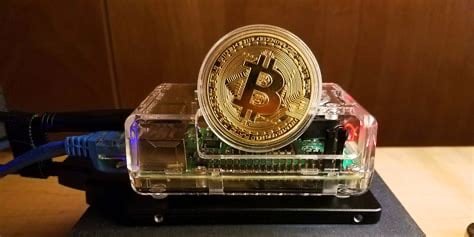Security Benefits of Running Your Own Bitcoin Node
Running a Bitcoin node, such as one offered by Start9, provides significant security benefits for users participating in the Bitcoin network. While many individuals choose to rely on third-party services or custodial wallets to interact with Bitcoin, running a personal node offers unparalleled control, privacy, and security.


Running a Bitcoin node, such as one offered by Start9, provides significant security benefits for users participating in the Bitcoin network. While many individuals choose to rely on third-party services or custodial wallets to interact with Bitcoin, running a personal node offers unparalleled control, privacy, and security. Here are some of the key security benefits of running a Bitcoin node:
1. Decentralization: Bitcoin nodes play a crucial role in maintaining the decentralized nature of the Bitcoin network. By running a personal node, users contribute to the distribution and decentralization of network infrastructure, reducing reliance on centralized entities such as mining pools or exchanges. This decentralization enhances the resilience of the network against censorship, attacks, and manipulation.
2. Data Privacy: When using third-party services or custodial wallets, users must entrust their private keys and sensitive information to these providers. This exposes users to the risk of data breaches, hacks, or unauthorized access. Running a personal Bitcoin node allows users to store and manage their private keys locally, ensuring that their sensitive data remains under their control and protected from potential security threats.
3. Transaction Verification: Running a Bitcoin node enables users to independently verify and validate transactions on the network, rather than relying on third-party intermediaries. By verifying transactions locally, users can ensure that they are interacting with the legitimate Bitcoin blockchain and not a counterfeit or compromised version. This reduces the risk of falling victim to fraudulent transactions, double-spending attacks, or other malicious activities.
4. Network Security: Bitcoin nodes play a crucial role in securing the network by enforcing consensus rules, validating transactions, and relaying information to other nodes. By running a personal node, users contribute to the overall security and integrity of the Bitcoin network, helping to prevent attacks, mitigate vulnerabilities, and maintain the network's trustworthiness.
5. Privacy Enhancements: Some Bitcoin node implementations, such as those offered by Start9, include privacy-enhancing features that allow users to protect their anonymity and confidentiality while interacting with the Bitcoin network. These features may include support for Tor routing, encrypted communication channels, and improved privacy safeguards. By leveraging these privacy enhancements, users can mitigate the risk of surveillance, tracking, and profiling by adversaries.
In conclusion, running a Bitcoin node, such as one provided by Start9, offers numerous security benefits for users seeking to enhance their privacy, control, and resilience in the Bitcoin ecosystem. By decentralizing network infrastructure, protecting sensitive data, independently verifying transactions, contributing to network security, and leveraging privacy-enhancing features, users can take proactive steps to safeguard their assets and maintain sovereignty over their financial transactions in the digital age.
